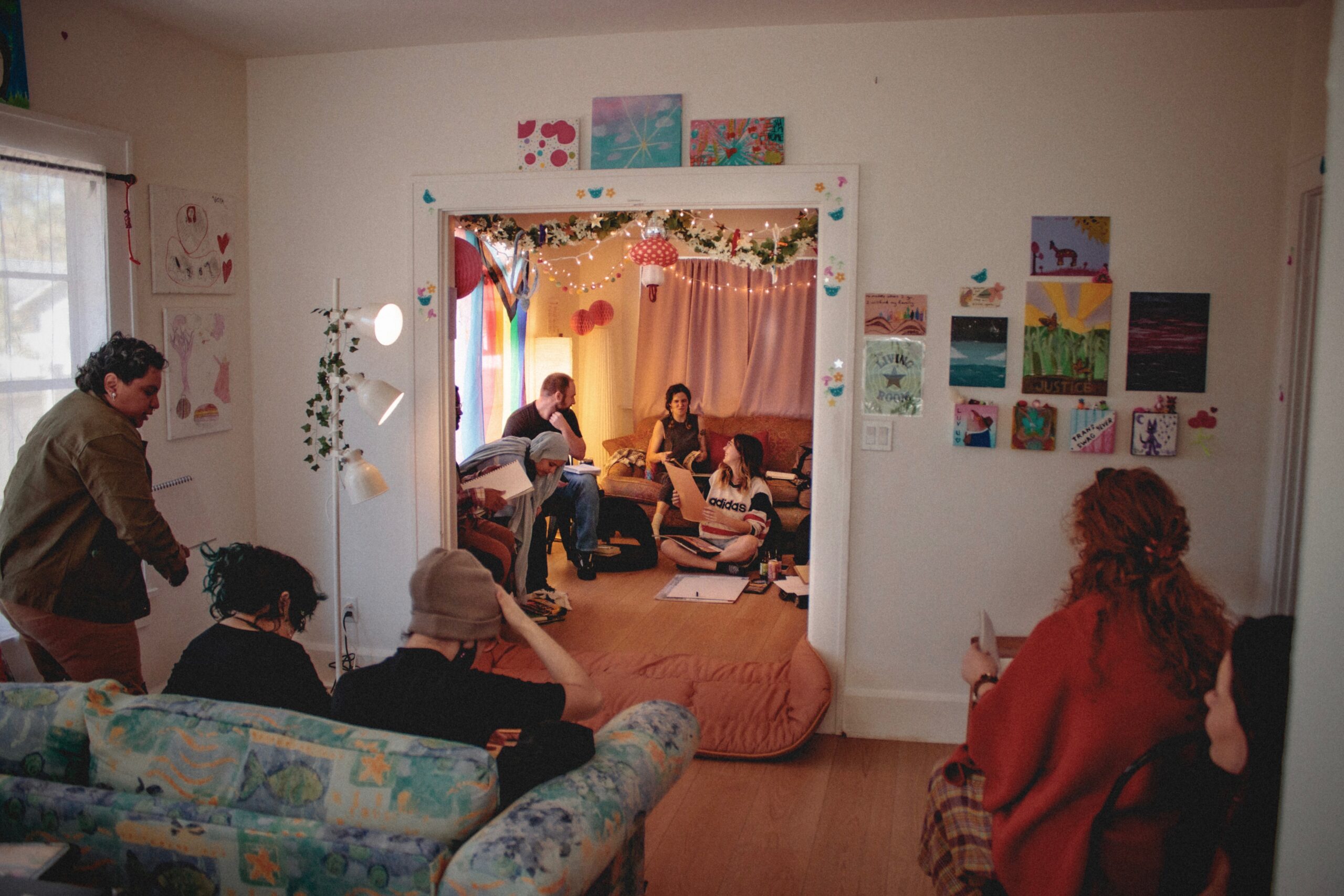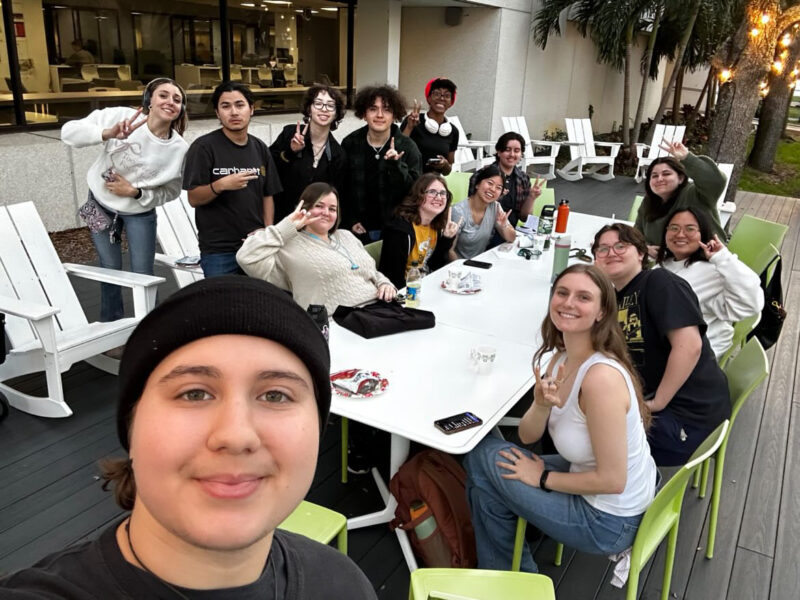Instructor studies marine life and gives insight to gender equality

For 32 years, professor Pamela Muller has taught at USFSP, returning each day to a waterfront office filled with research books, marine samples and a large world map.
Pamela Muller has the best view of the bay on campus.
While working in her office, Muller, 67, looks out her window to see her research field: the water.
“I usually see dolphins swimming by,” she said. “I almost get to see them every day.”
For 32 years, she has taught oceanography to graduate students in the college of marine sciences located at the USF St. Petersburg campus.
“I probably lecture too much and tell too many stories,” she said.
After taking classes with Muller, Natasha Mendez, a graduate student in biological oceanography, finds her to be a great mentor on how to succeed in science as a woman.
“(Muller) is always looking for ways to keep students engaged and make sure you understand the material,” Mendez said. “Don’t let her age fool you… her energy is just amazing.”
She was never one to work behind a desk. She has traveled around the world, met with marine scientists, and dived off coral reefs.
What began as an interest in college became a master’s thesis, and ultimately a career for Muller. She spent close to 30 years researching benthic foraminifera – shelled, single-celled amoebas that live on the coral reefs or the ocean floor.
Called “star sand” for their shape, forams feed bacteria, perform photosynthesis and act as surrogates for coral reef studies.
“They were just one component of a bigger picture,” Muller said. “Forams are a productive part for the reefs.”
She has given lectures addressing the impact of pollution on reefs and forams as she has examined the history and relationship between the two.
Muller was one of the first to find bleaching occurrences in the reefs. She has been assisted by her grad students to track down bleaching in the Florida Keys and document its impact on forams. Their research led to the publication of 2003 “Foraminifera in Reef Assessment and Monitoring (FoRAM) Index”
Muller studied oceanography at the University of Hawaii where she earned her Ph.D in 1977.
“The ocean was our classrooms’ back door,” she said.
For Muller, oceanography is “ecology on steroids,” covering diverse components ranging from the surface to the ocean floor.
“The oceans are so interrelated with Earth’s history that we can learn much from it,” she said.
But as much as she has accomplished, it wasn’t always easy for Muller.
In 1998, she joined five female professors in a class action lawsuit against the university for gender discrimination in salaries. The group claimed their salaries were lower than male full-time professors as well as wage inequities in raises and promotions without reason.
Muller researched salary disparities and found that full-time female professors were paid $20,000 less than their male counterparts.
“At the time, women faculty members were earning 80 percent of what the men earned,” she said.
The university responded by denying the issue existed.
But they weren’t the only ones – there were 10 previous federal lawsuits on discrimination based on sex, race and nationality.
“Some campus members were saying that women were not as productive as the men or (hadn’t) been around as long,” she said.
The case was settled later that year by giving the plaintiffs a total of $144,000 and a 40 percent raise.
“We had the best single case data to show for salary adjustment. My goal was to see women receive the salaries they deserve.”
She has given speeches about her research, and discussions on gender discrimination. One of her friends said that “equal opportunities do not provide the doorway; it provides the doorknob.”
She resides in St. Petersburg with her husband Bob, a biologist for the Fish and Wildlife Research Institute. She is currently the editor for the Journal of Foraminiferal Research.
During her career, she received several awards such as the USF Graduate Mentor of the Year in 2014 at the College of Marine Sciences.
Nearing the age of retirement, Muller acknowledges that her career is “winding down” and said she hopes to retire after working with her current group of graduate students.
“It has been both fun and frustrating,” she said.
“I hope I made a difference for students and the campus.”


